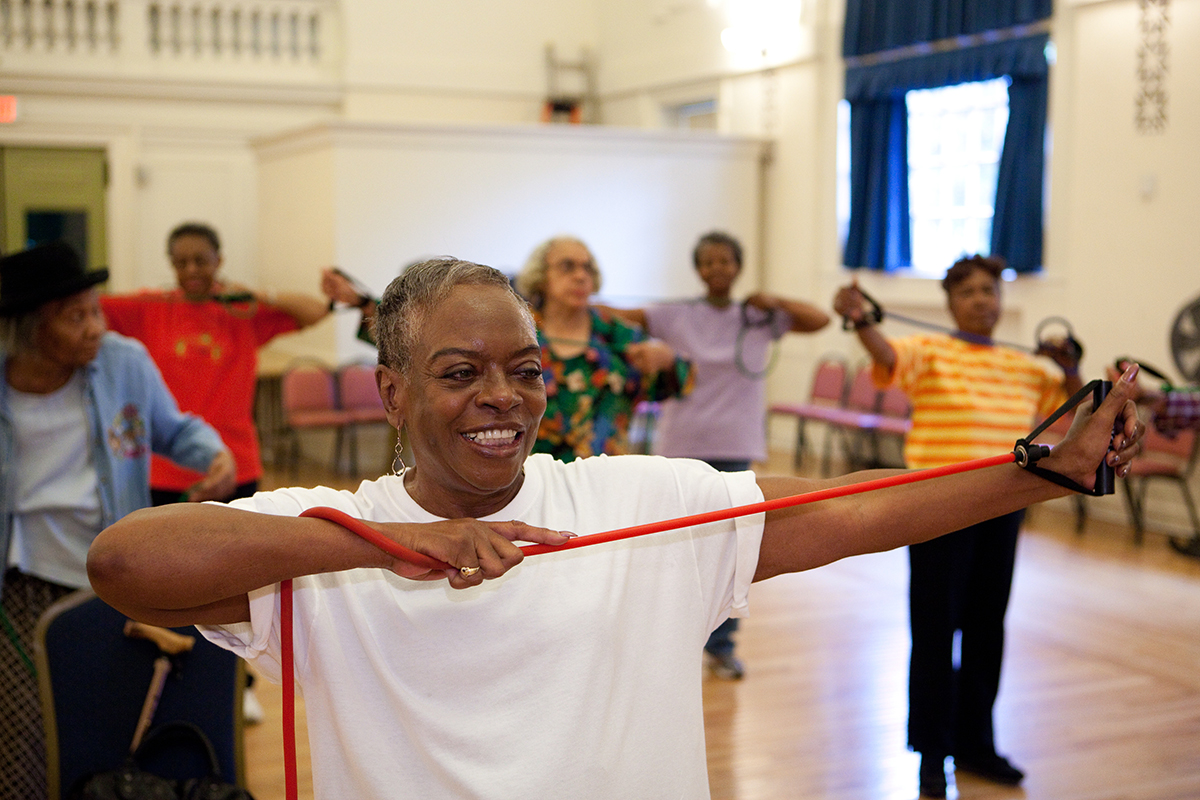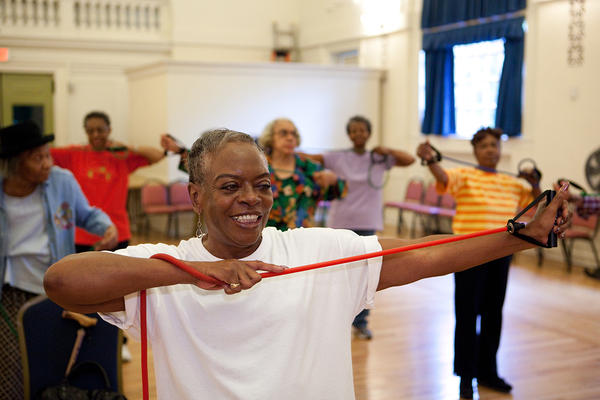Research To Focus On Healthiest In African-American Community

Center In The Park recipient of the 2013 Impact Award from GSK – GlaxoSmithKline. GlaxoSmithKline 5 Crescent Drive, Mailstop NY0400 Philadelphia, PA 19112 USA. Photography by Alan Brian Nilsen ©ABNpix/Alan Brian Nilsen/GSK
GSK / flickr.com/glaxosmithkline

Genetics, personal habits, even a neighborhood can all affect a person’s health. A new research center created by Emory University and Morehouse School of Medicine is looking at health disparities, especially in the African-American community. But instead of focusing exclusively on what makes people sick, researchers will explore what’s different about the healthiest people.
“For a long time, the tradition has been to focus on negative indicators of risk,” said Dr. Herman Taylor, a cardiologist at Morehouse School of Medicine. “What we want to do is focus on those things that promote health.”
Many factors contribute to health disparities between communities and ethnic groups, Taylor said: Socioeconomic status, exercise habits, access to healthy food, access to health care and quality of that care. Taylor wants to take a solutions-oriented approach and find out why some people are more resilient, despite having generally worse access.
“There are many people who are living out healthy lives within the black community,” Taylor said. “Whatever their habits, their diets, their social and spiritual support, or whether it’s in their DNA, we want to know more about why such individuals have such healthy life courses and want to spread that around.”
The MSM/Emory Cardiovascular Center for Health Equity will include researchers from a range of fields, looking at factors from the city to the cellular level. Taylor said Atlanta is an ideal place to do this work since it has such a large and diverse African-American population.
“Too much research tends to view African-Americans monolithically,” he said. “In fact, African-Americans are a highly diverse population. Atlanta may be the best place on the planet to explore that diversity and show how resilience protects the health of a lot of African-Americans despite what traditionally is viewed as adverse circumstances.”
The new center, funded by the American Heart Association, starts with a $3.9 million budget over the next four years.
9(MDAxODM0MDY4MDEyMTY4NDA3MzI3YjkzMw004))






